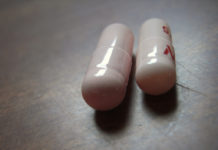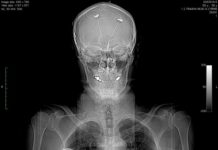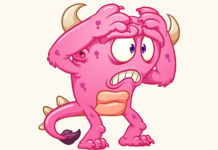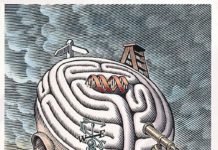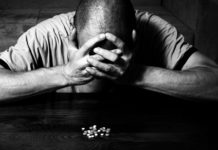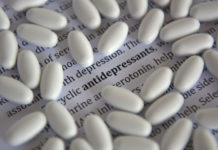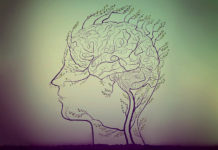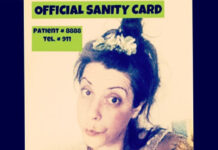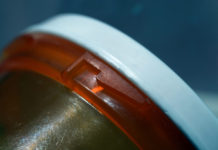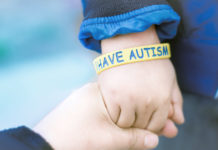Trauma, Psychosis, and Dissociation
Recent years have seen an influx of numerous studies providing an undeniable link between childhood/ chronic trauma and psychotic states. Although many researchers (i.e., Richard Bentall, Anthony Morrison, John Read) have been publishing and speaking at events around the world discussing the implications of this link, they are still largely ignored by mainstream practitioners, researchers, and even those with lived experience. While this may be partially due to an understandable (but not necessarily defensible) tendency to deny the existence of trauma, in general, there are also certainly many political, ideological, and financial reasons for this as well.
Antidepressant Use Leads to Worse Long Term Outcomes, Study Finds
Results from a 30-year prospective study demonstrated worse outcomes for people who took antidepressants, even after controlling for gender, education level, marriage, baseline severity, other affective disorders, suicidality, and family history of depression.
Adverse Effects: The Perils of Deep Brain Stimulation for Depression
Hundreds of people have been given remote control deep brain stimulation implants for psychiatric disorders such as depression, OCD and Tourette’s. Yet DBS specialists still have no clue about its mechanisms of action and research suggests its hefty health and safety risks far outweigh benefits.
Helping Children to Overcome OCD: 6 Creative Strategies for Parents
Here, Dr. Ben Furman offers a creative approach to helping children who struggle with OCD. Explaining why behaviors like reasoning, reassuring, and superstitious rituals don’t work, he suggests engaging alternatives that teach kids how to manage their “worry monster” and make sense of their distressing experience.
Mental Health Concerns Not “Brain Disorders,” Say Researchers
The latest issue of the journal Behavioral and Brain Sciences features several prominent researchers arguing that mental health concerns are not “brain disorders.”
Rising Rates of Suicide: When Do We Acknowledge That Something Isn’t Working?!
Scapegoating a purported unseen "illness" may provide temporary comfort from acknowledging the horrors and injustice of the world, but it is a delusion — and one with fatal consequences for many. When 45,000 people a year would rather die than live in this world any longer, it might behoove us all to consider what is happening in the world to cause this.
New Study Concludes that Antidepressants are “Largely Ineffective and Potentially Harmful”
A new study published in Frontiers in Psychiatry concludes that “antidepressants are largely ineffective and potentially harmful.”
Transcranial Magnetic Stimulation
TMS is a psychiatric treatment that uses a rapidly alternating magnetic field to induce electric currents in the brain. These currents stimulate neurons, causing them to "fire." When used repetitively, TMS is said to alter the excitability of the brain area that has been stimulated. In the psychiatric field, TMS is being used increasingly as a treatment for depression, particularly with so-called treatment-resistant clients. I Googled the string "TMS + depression" and got 1.35 million hits. So the idea is attracting attention.
What’s the Harm in Taking an Antidepressant?
We know that all drugs have side effects. That’s just part of the deal right? But is it really possible that an antidepressant can cause a sane person to act like a cold-blooded criminal?
The Case Against Antipsychotics
This review of the scientific literature, stretching across six decades, makes the case that antipsychotics, over the long-term, do more harm than good. The drugs lower recovery rates and worsen functional outcomes over longer periods of time.
Healing From Schizophrenia
My experience is that living in a psychosis forces your brain to "stretch" — you develop extra capacity to handle things. I was pretty much living a normal life, even working some of the time, while having all of my psychotic problems. After the psychoses faded away, I no longer needed to fight monsters, but I still had that extra capacity left. After 11 periods of psychosis, my brain has never worked as well as it does now.
My Diagnosis of ADHD and the Downfall That Followed
A simple, one-time visit to an unfamiliar counselor resulted in my diagnosis of ADHD. That same visit started my avalanche of drug abuse. I was 19 years old when I was falsely diagnosed with ADHD, and it forever changed my life.
Bipolar Diagnosis Linked to Childhood Adversity
With the ties between traumatic childhood experiences and mental health issues, should we continue to focus on biological approaches?
Schizophrenia Deconstructed
After a few weeks it became clear to me the complete lack of comprehension that I faced as a person claiming to have been cured of psychosis. Being a schizophrenic claiming to no longer suffer from schizophrenia only made me seem more schizophrenic due to the current culture of psychiatry.
How the Human Stress Response Explains Away “Bipolar Disorder”
Here we'll take a look at so-called 'mania.' We'll go through the criteria for a 'manic episode' symptom by symptom so you can see how the stress response is potentially operating. There's practically nothing that happens in human minds and bodies that the stress response doesn't potentially affect.
New Data on the Adverse Effects of Meditation and Mindfulness
Study reports on the less-examined findings of difficult and painful meditation-related experiences.
Is Long-term Use of Benzodiazepines a Risk for Cancer?
A large study of the population in Taiwan reveals that long-term use of benzodiazepine drugs, commonly prescribed for anxiety, significantly increases the risk for brain, colorectal, and lung cancers. The research, published open-access in the journal Medicine, also identifies the types of benzodiazepines that carry the greatest cancer risk.
Soteria Israel: A Vision from the Past is a Blueprint for the Future
In Israel, there is a budding Soteria movement that foretells of a possible paradigm shift in care. The thought is that such care may become a first-line treatment for newly psychotic patients.
Very Slow Tapering Best For Antidepressant Withdrawal
A new article in Lancet Psychiatry finds that slower tapering of SSRIs is better for preventing antidepressant withdrawal effects.
The Real Myth of the Schizophrenogenic Mother
Acknowledging the role of trauma inflicted by a given individual’s mother is not the same as laying all blame for “mental illness” at the feet of motherhood. Meanwhile, a mountain of evidence has accumulated linking schizophrenia to sexual, physical, and emotional abuse and many other categories of adverse childhood experiences.
Study Examines Experience of Long-Term Antidepressant Use
The use of antidepressants has increased substantially in recent years, yet relatively few studies have asked patients about their experiences with these drugs. A...
Not So Rare But Rarely Diagnosed: From Demonic Possession to Anti-NMDA Receptor Encephalitis
Throughout the ages, convulsions, contortions of the body and face, including the tongue, super-human strength, catatonic periods, long periods of wakefulness or sleep, insensitivity to pain, speaking in tongues, and a predilection for self-injurious behaviours have all been offered as physical evidence of possession. The modern day interpretation, however, comes with a plot twist befitting a media spectacle. There is growing consensus in the medical community that many prior accounts of “demonic possession” may have represented original accounts of what is now broadly known as autoimmune encephalitis.
No, There is no Such Thing as ADHD
Somewhere along the line we have lost the understanding that kids come in all shapes and sizes. Some kids are active, some are quiet; some kids are dreamers, others are daring; some kids are dramatic, others are observers; some impulsive, others reserved; some leaders, others followers; some athletic, others thinkers. Where did we ever get the notion that kids should all be one way?
Initial Trial of Ayahuasca for Depression Shows Promising Results
Ayahuasca found to be effective in treating moderate to severe depression in low-income population.
The Scientism of Autism
Autism is now simply assumed to represent a real, tangible, identifiable ‘thing.’ But no one is asking the obvious question: On what evidential basis can you conclude that autism represents a natural category that can be differentiated from other natural categories? According to the real science, autism should be seen as a fact of culture, not a fact of nature.


